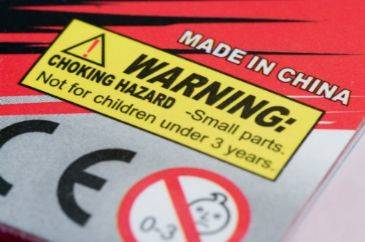Georgia’s product liability law plays a crucial role in ensuring the safety and protection of consumers across the state. When individuals purchase goods, they have the right to expect those products to be safe and free from defects. Unfortunately, not all products meet these standards, and when injuries occur as a result of a faulty product, the legal concept of product liability comes into play. In this article, we will explore what you need to know about Georgia product liability law, its various components, and the requirements that must be met to establish a successful product liability claim.
Types of Product Liability Claims
Georgia law recognizes three main types of product liability claims:
- Manufacturing Defects: These claims arise when a product becomes flawed during the manufacturing process, making it different from other items of the same product line.
- Design Defects: Design defects pertain to flaws in the product’s initial design, rendering it dangerous or unreasonably unsafe even when manufactured correctly.
- Failure to Warn: Also known as marketing defects, these claims involve products that lack appropriate warnings or instructions about potential dangers associated with their use.
Requirements for a Successful Product Liability Claim
To establish a product liability claim in Georgia successfully, the following elements must be proven:
- Injury or Damage: The plaintiff must demonstrate that they suffered harm or damage as a result of using the defective product. This could include physical injuries, property damage, or financial losses.
- Product Defect: The plaintiff must prove that the product in question was indeed defective. This could involve showing that the product had a manufacturing defect, a design flaw, or lacked adequate warnings.
- Causation: There must be a direct link between the product defect and the injury or damage suffered. The plaintiff needs to show that the defect was the proximate cause of their harm.
- Product’s Intended Use: The injured party must establish that they were using the product as intended or in a foreseeable manner when the injury occurred. Misuse of the product may impact the viability of the claim.
The Statute of Limitations
In Georgia, there is a specific timeframe within which a product liability claim must be filed. This is known as the statute of limitations. Generally, the statute of limitations for product liability claims is two years from the date of the injury or damage. However, there are exceptions, and in some cases, the discovery rule may apply, which starts the statute of limitations from the date the injury was discovered or should have been reasonably discovered.
It is crucial to consult with an experienced product liability attorney promptly after an injury to ensure that your claim is filed within the applicable statute of limitations.
Comparative Fault in Georgia
Georgia follows the doctrine of modified comparative fault when it comes to product liability cases. This means that if the injured party is found partially at fault for their own injuries, their recoverable damages will be reduced by their percentage of fault. However, if the plaintiff is deemed to be 50% or more at fault, they may be barred from recovering any damages at all.
Potential Damages
When a product liability claim is successful, the injured party may be entitled to various types of damages, including:
- Medical Expenses: Compensation for past and future medical treatment related to the injuries sustained.
- Lost Wages: Reimbursement for wages lost due to the injuries, both in the past and projected future losses.
- Pain and Suffering: Compensation for physical pain, emotional distress, and diminished quality of life caused by the injuries.
- Property Damage: Reimbursement for any property damage caused by the defective product.
Importance of Legal Representation
Navigating the complexities of Georgia’s product liability law can be daunting without proper legal guidance. An experienced product liability attorney from Princenthal, May & Wilson, LLC can provide invaluable assistance in building a strong case, gathering evidence, and negotiating with insurance companies and manufacturers on your behalf.
Our attorneys have a comprehensive understanding of product liability law and a successful track record of representing clients in various product liability cases. If you or a loved one has suffered injuries or damages due to a defective product, we are here to help you seek the compensation you deserve.
Building a Strong Product Liability Case
To build a robust product liability case, it is crucial to follow these essential steps:
- Document the Incident: As soon as the accident occurs, document the scene, take photographs of the product and its defects, and record any injuries or damages sustained. Gathering evidence promptly can significantly strengthen your case.
- Preserve the Product: Preserve the defective product in its current state, if possible. It can serve as critical evidence in proving the product’s defect and the cause of the injury.
- Seek Medical Attention: Your health and well-being are of utmost importance. Seek medical attention immediately after the incident, even if your injuries seem minor. Some injuries may not be immediately apparent, and a medical report can link your injuries to the product defect.
- Keep All Relevant Documents: Retain all records related to the product, including receipts, manuals, packaging, and any communication with the manufacturer or retailer. These documents can help establish the product’s identity and the circumstances surrounding its purchase.
- Consult an Experienced Attorney: Product liability cases can be intricate, involving multiple parties and complex legal theories. Consulting an experienced product liability attorney from Princenthal, May & Wilson, LLC can ensure that your rights are protected, and your case is pursued diligently.
Defending Against Product Liability Claims
Manufacturers and sellers may attempt to defend against product liability claims using various strategies, including:
- Challenging Causation: Defendants may argue that the product defect did not cause the plaintiff’s injuries, or that the plaintiff’s misuse of the product was the primary cause of the harm.
- Assumption of Risk: The defense may claim that the plaintiff was aware of the potential risks associated with using the product and willingly assumed those risks.
- Product Misuse: Defendants may argue that the plaintiff used the product in a manner not intended by the manufacturer, which led to the injuries.
- Lack of Defect: The defendant may contend that the product was not defective and met all industry standards at the time of manufacturing
Product liability law in Georgia is designed to protect consumers from dangerous and defective products. Understanding the various types of product liability claims, the requirements for a successful claim, the statute of limitations, and the potential damages available is essential for anyone who has been injured by a faulty product.
If you believe you have a product liability claim, don’t hesitate to reach out to our dedicated team at Princenthal, May & Wilson, LLC. We are committed to fighting for the rights of injured individuals and holding negligent manufacturers accountable. Contact us today for a free consultation to discuss your case and explore your legal options. Your well-being and compensation are our top priorities.

